Five unexpected (but great) places to network

This article was written by freelancer Priyanka Mogul
There are a few phrases we are doomed to hear over and over again throughout university and the early stages of our careers:
“Networking is key.”
“Get out there and network.”
“It’s not about what you know, it’s about who you know.”
If you’re anything like me, these phrases fill you with dread. I hated the idea of networking. And for a long time, I was terrible at it. I detested “networking events” that forced me to make small talk with strangers, most of whom I never spoke to again in my life.
But over time, I discovered alternative ways to network; ones that are a lot less forceful, and a more efficient in helping me connect with the right people. If, like me, you’re not sure where to start, here are some unexpected (but great) places to build your professional network.
1. Student societies
My first positive experience of networking came through student societies at university. Unlike generic networking events, societies guarantee connecting you with people who are passionate about a specific topic. I was able to attend events that were tailored to my career interests, where I was introduced to speakers who were the sort of people I needed to be connecting with.
But perhaps more crucially, I met other students who were pursuing a similar career path to mine. These people became important sources of information about events and internships relating to our mutual interests. Over time, they would go on to become colleagues in my industry and valuable LinkedIn contacts to tap into during the early days of my career.
For those of you who are no longer at university, website MeetUp is the equivalent to student societies in the post-education world. They have local groups on practically every area of interest – with thousands of members in each group, all waiting for you to network with them.
2. Twitter
When most people think of networking through social media, they assume LinkedIn is the most appropriate. However, I have found that LinkedIn is more suitable for connections you have already met a couple of times. If you’re looking to connect and follow people you don’t know already, Twitter is your go to platform.
In the early days of my journalism career, I was following a range of people who were posting about job opportunities, as well as educating me about my industry through their updates about their professional work. I found it a lot easier to track down interesting people on Twitter than on any other social media site, and found the Twittersphere more approachable when I wanted to reach out to a stranger to ask to connect. Many people on Twitter are open to a casual chat about their career paths, and some are even willing to provide advice about the industry. I found many digital mentors through the platform, both in journalism, as well as other industries when I considered a career change.
Make sure you make use of Twitter’s lists feature, which allows you to find and follow lists of people related to your areas of interest.
3. Documentary screenings
This is a really fun way to network because you also get to watch some really awesome stuff in the process. It takes the edge off when you and your to-be contacts are focused on a screening before mingling with each other – and it also gives you an easy way into conversation when the time does come to network after the documentary is over.
Most documentary screenings include a Q&A, as well a (if you’re lucky, free) drinks reception. DocHouse and the Frontline Club in London are great venues to catch some really interesting documentaries, before heading to their bars to mingle with the rest of the audience. You’ll be surprised as to how many fascinating conversations emerge over these drinks, and how many of them you’ll end up adding on LinkedIn.
If documentaries really aren’t your thing (make them your thing), or you’re based outside London, public events in general are great places to network. Search through Eventbrite for relevant events in your city (and keep an eye out in particular for the ones that have a post-event reception).
4. Volunteering
If you can afford it, volunteering your time is a great way to meet new people across different walks of life. This can be useful if you’re not quite sure about the exact career path you want to take yet.
While most people associate volunteering with picking up trash or planting trees (both great things to do), there are a whole range of volunteering opportunities that will not only introduce you to new and interesting people, but also equip you with skills for your career. Through volunteering with charities, I gained some really valuable communications experience, as well as met people who now work in different sectors to me but often act as resourceful contacts when I need to tap into these sectors.
Check out websites like Do-it.org and CharityJob.co.uk to get an idea of what’s available, or use their search functions to find opportunities tailored to your interests.
5. The app store
Technology is changing almost everything we do – and that applies to networking as well. There’s a whole array of fascinating apps in this market, and more and more people are making use of what they have to offer.
One of the apps that has gained popularity in recent years is Shapr, which is basically like Tinder, but for networking. You can build your profile based on the career fields you are most interested in, your professional goals, and your status as entrepreneur, freelancer, student, etc. A similar app, Causr, also allows you to find users near you.
Another kind of networking app is one that lets you digitally network with people at events you attend. It might sound strange, but apps such as WooChat are really useful when you’re at an event and don’t know who in the room might be most appropriate for you to network with. A similar app, CrowdLink, even allows you to connect with attendees before the event.
They all have free options, so check them out and decide which one is best for you.
